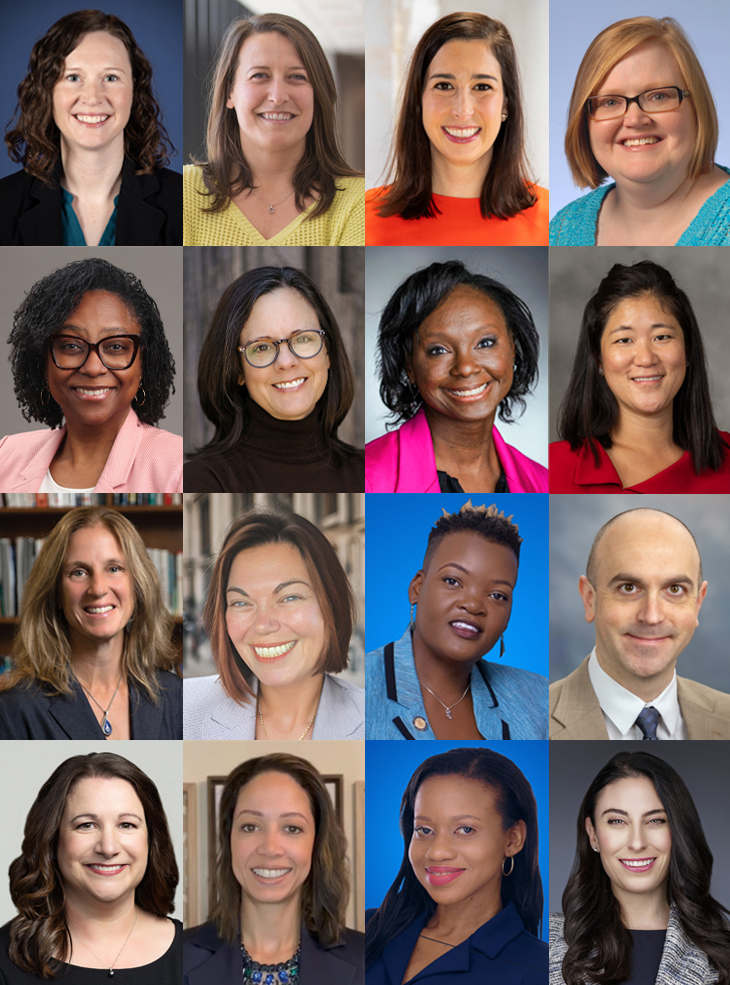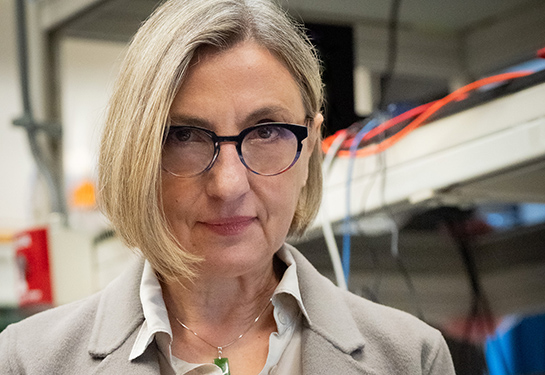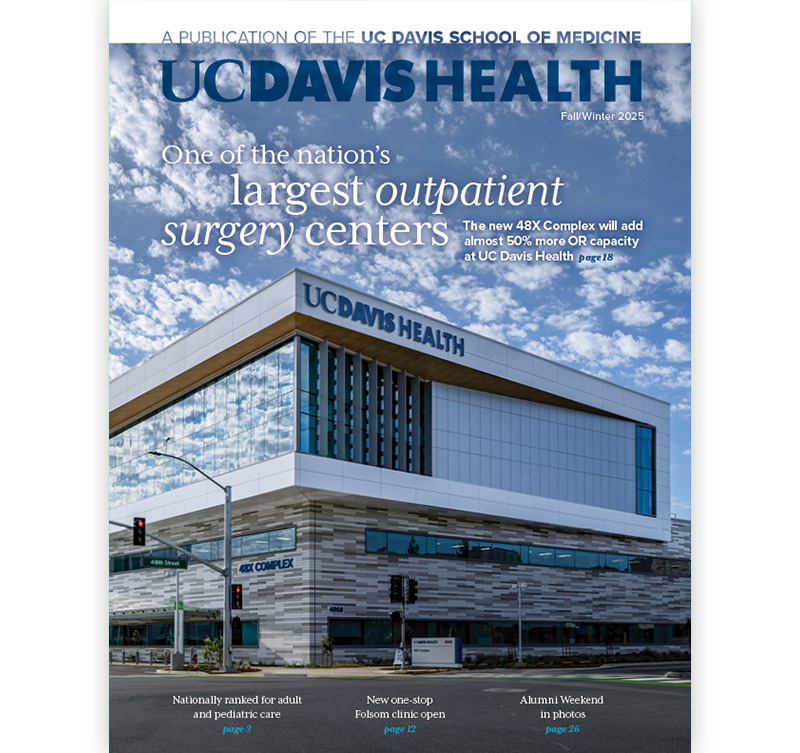UC Davis nursing school announces 2024 Betty Irene Moore Fellows
Fifth cohort features 16 diverse nurse scientists from around the U.S.
Today, 16 fellows joined the fifth cohort of the Betty Irene Moore Fellowship for Nurse Leaders and Innovators at the Betty Irene Moore School of Nursing at UC Davis. Launched in 2020, this latest addition expands the fellowship community to more than 60 fellows and alumni.
The newest Betty Irene Moore Fellows include 13 who are affiliated with major public and private universities across the country, and three from major health systems and organizations. This marks the largest cohort of fellows from health care organizations.
Heather M. Young, fellowship national program director and School of Nursing dean emerita, said the group has significant potential to transform the nursing profession and health care outcomes.
“Our newest group of fellows is conducting important research on topics such as digital health interventions for underserved populations, navigating cancer care across the lifespan, addressing the needs of families associated with incarceration, and using artificial intelligence to mitigate mental health challenges,” Young said. “We are thrilled to support these nurse scientists as they address these vital health care issues over the next three years. We look forward to seeing them implement innovative approaches to health care delivery and policy, which will ultimately advance health and equity.”

The competitive fellowship program selects early- to mid-career nursing scholars and innovators and provides $450,000 in funding over three years for an innovative project or study plus $50,000 for their home institution. During the three-year program, fellows remain at their home institutions, participate in an online learning community, then gather annually at UC Davis for a week-long convocation.
The program was launched by a $37.5 million award from the Gordon and Betty Moore Foundation, and welcomed its first cohort of 10 fellows in 2020. To build on the fellowship's momentum, the foundation gave an additional $7.4 million in 2023 to increase the number of future fellows. The foundation has funded five cohorts of fellows, with the fifth cohort to conclude its three-year program on June 30, 2027.
“We appreciate the foundation’s support and are enthusiastic about the strong fellowship community that has gained such impressive momentum,” Young said. “By equipping nurse scientists with the knowledge, skills, and resources they need to be effective leaders and innovators, we can drive meaningful change and improve health care delivery.”
The first cohort completed the three-year program in 2023, while the second cohort completes its fellowship in July. The third and fourth cohorts continue to work on their projects.
Betty Irene Moore Fellows focus on populations across the lifespan and their projects aim to address issues in prevention, health care delivery and education. The incoming cohort is passionate about caring for underserved populations, using technology to promote health equity and supporting patient families and caregivers.
2024 fellows
- Julie Bidwell, assistant professor at the Betty Irene Moore School of Nursing at UC Davis: Bidwell’s research focuses on family caregiving and cardiovascular and heart failure care.
- Samantha Boch, assistant professor at the University of Cincinnati and affiliate faculty at the Cincinnati Children's Hospital Medical Center James M. Anderson Center for Health Systems Excellence : Boch’s research focuses on social determinants of health and the impacts of mass incarceration on child and family health.
- Lauren Covington, assistant professor at the University of Delaware: Covington’s research focuses on sleep and health outcomes in socioeconomically disadvantaged families.
- Stacey Crane, assistant professor at the University of Texas Health Science Center at Houston: Crane’s research focuses on pediatric cancer treatment and care.
- Gaea Daniel, assistant professor at Emory University: Daniel’s research focuses on the sociocultural and environmental influences that affect sexual health behaviors and outcomes.
- Amanda Emerson, assistant professor at the University of Kansas Medical Center: Emerson’s research focuses on barriers to health equity in populations affected by criminal legal system involvement.
- Tamryn Fowler Gray, instructor in medicine at the Dana-Farber Cancer Institute: Gray’s research focuses on patient-family centered care and the palliative and supportive care needs of family caregivers.
- Jin Jun, assistant professor at Ohio State University: Jun’s research focuses on work as a social determinant of health among health care workers.
- Erica Liebermann, assistant professor at The University of Rhode Island: Liebermann’s research focuses on women’s health services and cancer health equity.
- Adrienne Martinez-Hollingsworth, director of research and evaluation at the AltaMed Institute of Health Equity: Martinez-Hollingsworth’s research focuses on health disparities in the delivery of health care services among minority and medically disenfranchised populations.
- Schola Matovu, assistant professor at the University of Utah: Matovu’s research focuses on health promotion for marginalized older adults with caregiving responsibilities in underserved populations.
- Blake McGee, associate professor at Georgia State University: McGee’s research focuses on the impacts of federal and state health policies and how they affect patient outcomes and health care costs.
- Kimberly Powell, assistant professor at the University of Missouri: Powell’s research focuses on health information technology and gerontology.
- S. Raquel Ramos, associate professor at Yale University: Ramos’ research focuses on user-centered design and technology-driven behavioral interventions that promote health equity.
- Christina Ross, assistant professor at the University of Connecticut: Ross’ research focuses on health equity promotion and adolescent sexual health.
- Danielle Altares Sarik, director of nursing research and evidence-based practice at Nicklaus Children’s Hospital: Sarik’s research focuses on the evaluation of health care, with an emphasis on factors impacting patient safety and health outcomes, health care delivery, and the health care workforce.
Applicants completed a rigorous application and interview process. National program office leaders, along with members of the Fellowship National Advisory Council ultimately selected a diverse group from a very competitive pool pursuing innovative approaches to challenging problems. The program forms a learning community across the fellowship cohorts, combined with a strong curriculum to build skills and confidence in anti-racist leadership, innovation and strategic communications.
Faculty from the UC Davis Graduate School of Management and beyond contributed their expertise to develop the fellowship curriculum. The fellowship is designed to enhance leadership and innovation capacity, strengthen strategic thinking and collaborative skills, expand professional networks and propel innovative ideas to fruition.
To learn more, visit the fellowship program webpage.





